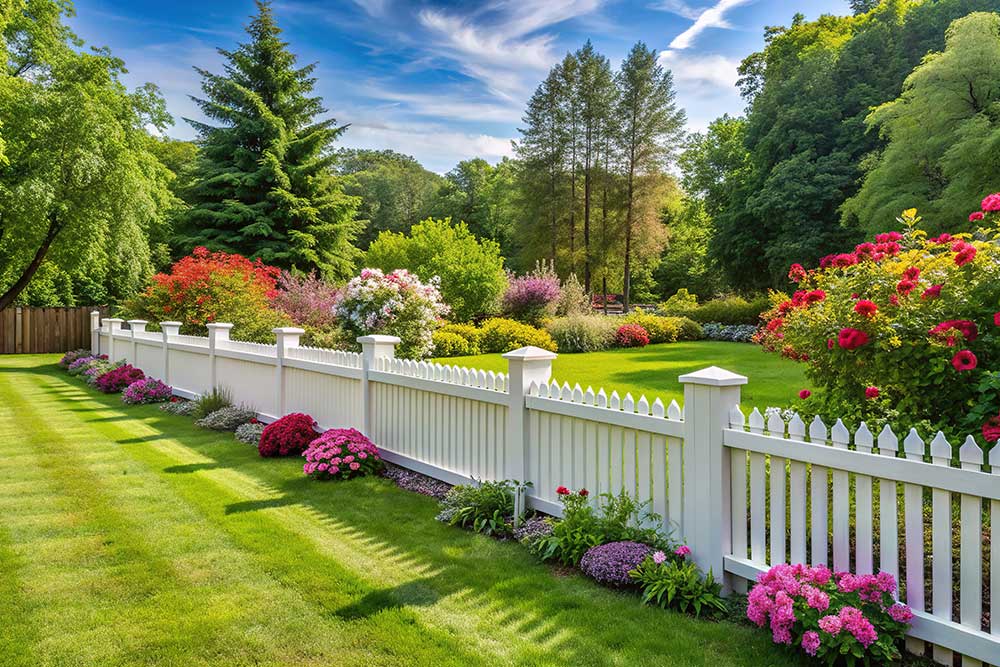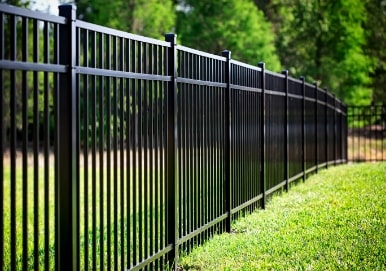A vinyl fence is a long-lasting and stylish addition to any property. However, the upfront cost can be a concern for many homeowners. Vinyl fence financing offers a way to spread out payments and makes installation more affordable. Recognizing different financing options can help homeowners choose the best solution for their budget and long-term financial goals.

Understanding Vinyl Fence Financing
Investing in a vinyl fence can enhance the look and security of your property. However, the cost of materials and installation may be higher than expected. Financing allows homeowners to spread out the expense rather than paying a large amount upfront.
Financing options vary based on interest rates, repayment terms, and eligibility requirements. Some lenders offer fixed monthly payments. Meanwhile, others have promotional periods with deferred interest. Researching different options helps homeowners find a payment plan that aligns with their financial situation.
Personal Loans for Vinyl Fences
A personal loan is a common way to finance a new vinyl fence. Banks, credit unions, and online lenders offer unsecured loans that can cover the cost of materials and labor. These loans typically come with fixed interest rates and predictable monthly payments.
Since personal loans do not require collateral, lenders assess creditworthiness based on income and credit score. Borrowers with higher credit scores often receive lower interest rates. Comparing multiple lenders can help secure the best terms for financing a fence installation.
Home Equity Financing Options
Homeowners who have built equity in their property can use it to finance a vinyl fence. Home equity loans and home equity lines of credit (HELOCs) allow access to funds based on the property’s value. These options often have lower interest rates compared to personal loans.
A home equity loan brings a lump sum with fixed payments. Meanwhile, a HELOC operates more like a credit card with a revolving balance. Both require using the home as collateral. This makes it important to borrow responsibly.
Retailer and Contractor Financing
Some fencing companies offer financing plans directly to customers. These plans often feature promotional interest rates, such as zero-percent financing for a specific period. This can be beneficial for those looking to break up the cost without paying additional interest.
Contractor financing may have different approval criteria compared to banks and credit unions. Some programs work with customers who have lower credit scores – making it easier to qualify. Checking the fine print is important to avoid high rates once the promotional period ends.
Credit Cards for Fence Installation
Using a credit card to finance a vinyl fence can be convenient for smaller projects. Some homeowners use a card with a zero-percent introductory rate to avoid interest charges for a limited time. If the balance is paid off within the promotional period, this can be a cost-effective choice.
However, credit cards often carry high interest rates once the introductory period ends. If the balance remains unpaid, costs can add up quickly. Before choosing this option, it is important to consider the long-term impact on personal finances.
Cash-Out Refinancing as a Financing Strategy
Refinancing a mortgage can be a way to access funds for a vinyl fence installation. A cash-out refinance replaces the existing mortgage with a new one. This allows the homeowner to withdraw a portion of their home’s equity as cash. This option typically gives lower interest rates than unsecured loans.
Since mortgage refinancing extends repayment terms, homeowners should weigh the long-term financial impact. Increasing a mortgage balance to cover a fence may result in higher overall interest costs. Carefully reviewing the loan terms can help determine if this approach makes sense.
Making the Right Choice for Your Fence Project
Selecting a financing method depends on individual financial goals and circumstances. Homeowners should consider factors such as interest rates, loan terms, and repayment flexibility when making a decision. Comparing different options can help secure the most affordable plan for installing a vinyl fence.
A well-planned financing strategy makes it easier to complete a fencing project without financial strain. No matter if you are using a personal loan, home equity financing, or another option, careful planning helps facilitate a smooth installation process. Taking the time to review available choices leads to better financial outcomes.
Design and Installation Made Simple
Once financing is in place, selecting the right fence style and installer is the next step. Good Neighbor Fence specializes in high-quality vinyl fences designed to enhance privacy and curb appeal. Our team delivers expert installation services tailored to each homeowner’s needs.
If you are ready to upgrade your property with a beautiful and durable vinyl fence, call us at (804) 737-4664. We will guide you through the selection process and handle the installation with precision. Let us help you bring your fencing vision to life.





